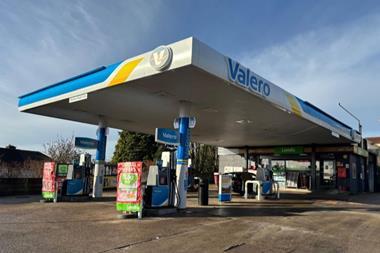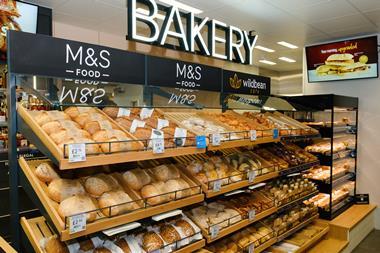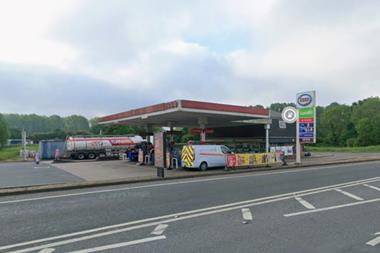With most forecourts now focusing on the shop side of their business and on categories like chilled foods, it’s easy to overlook non-food items. However, many operators can testify to the success of non-food promotions. These are the things often promoted on the top of petrol pumps offering maps or torches or candles at knockdown prices when you spend so much on fuel. You might be asking yourself who buys such things? And the answer is, loads of people. Asif Ayub, sales director of Fast Trak, says they are great impulse purchases. "We offer everything from high-tech gadgets such as wireless headphones to mugs for mass appeal. I can’t really pinpoint a target audience because our products appeal to everyone. For instance we sold shaver sets and hair clippers which we thought would appeal to men. And yes they did, but we also sold clippers to a lady in Wales to use on her horse!"
Ayub says promotions are changed every five weeks to create interest. "Some of our customers have five or six running at a time but I think four is enough otherwise your pumps end up looking like Christmas trees." Prices range from £2.99 to £19.99 but Ayub says the best price point is £4.99 because those products are always volume sellers. Being competitive is important. Ayub says Tesco had hair clippers, which it was selling for £7.99, but Fast Trak’s went for £4.99.
He adds that margins are good. "If you sell one of our products for £9.99 you’d make £3 straight away. You’d have to sell a lot of Mars bars to make £3."
Goods are provided on a sale or return basis so there’s no risk to the retailer. And it’s a hassle-free deal, with merchandisers coming in every five weeks to take away any unsold stock and put out new items.
"Some sites sell £2-3,000-worth of goods a month but £500 is probably average. Sales depend on the volume of customer traffic and how proactive you are in selling," says Ayub.
Retailers are advised to use all the point-of-sale material provided but he recalls one customer who didn’t: "We had one lady who did not put out the pump crowners, instead she gave her cashiers incentives to sell. Every single time a customer came to the till they were asked whether they had seen the latest promotion. This increased sales three-fold and all it cost the retailer was a £20 voucher to the cashier who had sold the most items each month.
"But generally customers do use the point of sale and we realise there’s limited space in forecourts so all we supply them with is one small piece of display material for the till point."
He admits that if you are a small independent in the middle of nowhere you’re unlikely to be successful with these promotions but if you are doing 2mlpa or more then he says they’re definitely worth it.
"Our business is sale or return so we can’t afford to get a product wrong. Every single product we do should be successful as we always test new products. In fact we have customers who get really excited about the promotions and like to be the first to get them."
He says 2007 was a good year as his company became an approved supplier of Texaco. Fast Trak is also part of Palmer & Harvey’s Ace scheme.
Obviously Fast Trak is not the only company offering these promotions - in fact the market is very competitive
Asiffa Gadatra, director of Spot Promotions, says they had many hit products in 2007 so it was a brilliant year for them: "One of the biggest volume sellers was the 12-LED headlamp; we sold 60,000 pieces in three weeks."
She says consumers are usually looking for products which are value for money and they especially like branded products at value prices.
"We have a team of buyers who go out and source innovative lines. They come back to us and we get our marketing team to produce the point of sale for that product. We then test the lines on forecourts. Once we know the product will sell, it is ordered in quantity for our entire customer base. And as soon as we buy in volume our prices become very competitive so that we can retail at the right price.
"The margins we offer to our retailers range from 30-35%. Retailers are happy with this margin as long as you provide them with good products, good service and well-presented point of sale. Our promotions have been a real success in forecourts. To any retailers who haven’t tried them, I’d say give them a go as there is no initial outlay."
DSL too reported a good 2007. Linda Horton, southern UK area manager for the company, says one of the biggest successes was the colour-changing solar lights. "We sold those for £5.99 each and they generated a lot of repeat purchases. People would buy one, try it out in their garden then come back and buy another two or three.
Like Fast Trak and Spot, DSL always trials products before putting them out to the mass market. "We have an office in the Far East for sourcing new products and we also listen to what our customers want.
"We buy trial stock and try it in various outlets first to make sure it’s right. We use this trial period to get the prices right. We never guess our prices; we always go on what customers say." She says quality is the most important thing to customers. "We offer some strong brands and they always sell well. Things like AA-branded items sell well as the branding increases customer confidence."
Just like Gadatra, she says retailers have nothing to lose, and adds: "Margins are better than ever but retailers don’t bank margins, they bank profit and that’s what these products deliver."
----
=== Case study: Sewell Group ===
David Craven-Jones, operations director of the Sewell Group, has shop promotions in 10 of his company’s 12 sites. "We use both DSL and Spot Promotions. The maximum number of promotions we have is four at a time; two from each company - any more and it can get messy. You have to be careful because if we gave the merchandisers free rein, I’m sure they’d put loads out. The products we choose are dependent on location and we ask staff about what they think will sell.
"The things that always sell are the torches and atlases; some of the wackier items I do wonder about but I learnt a long time ago to stock what sells and not what I would like to buy. There is definitely a market for these products."



























No comments yet